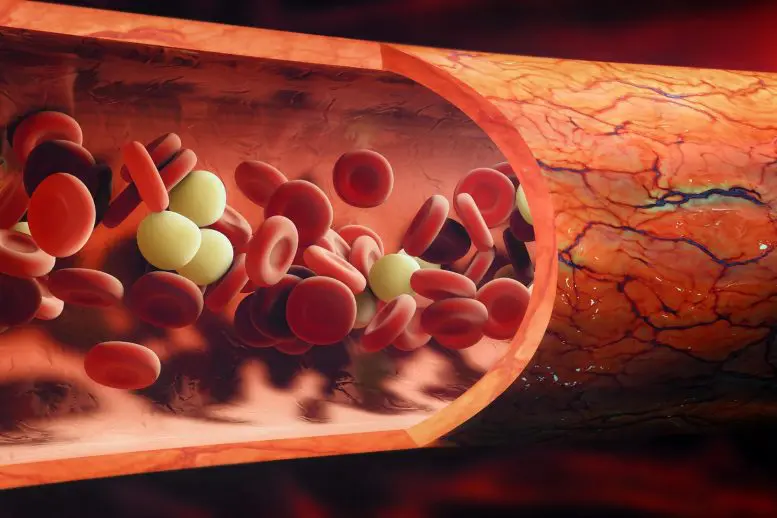
Mice lacking ADORA2B in their blood exhibit accelerated aging, including poor memory and hearing deficits.
Research conducted by Qiang et al has discovered a link between a protein in red blood cells and age-related decline in cognitive performance. Published in the open access journal PLOS Biology on June 17th, 2021, the study shows that depleting mouse blood of the protein ADORA2B leads to faster declines in memory, delays in auditory processing, and increased inflammation in the brain.
As life expectancies around the world increase, so are the number of people who will experience age-related cognitive decline. Because the amount of oxygen in the blood also declines with age, the team hypothesized that aging in the brain might be naturally held at bay by adenosine receptor A2B (ADORA2B), a protein on the membrane of red blood cells which is known to help release oxygen from the blood cells so it can be used by the body. To test this idea, they created mice that lacked ADORA2B in their blood and compared behavioral and physiological measures with control mice.
The team found that as the mice got older, the hallmarks of cognitive decline — poor memory, hearing deficits, and inflammatory responses in the brain — were all greater in the mice lacking ADORA2B than in the control mice. Additionally, after experiencing a period of oxygen deprivation, the behavioral and physiological effects on young mice without ADORA2B were much greater than those on normal young mice.
Thus, aging in the brain is naturally reduced by ADORA2B, which helps get oxygen to the brain when needed. Further testing will be needed to determine whether ADORA2B levels naturally decline with age and whether treatment with drugs that activate ADORA2B can reduce cognitive decline in normal mice.
Dr. Xia, the leader of the study, commented “Red blood cells have an irreplaceable function to deliver oxygen to maintain bioenergetics of every single cell within our body. However, their function in age-related cognition and hearing function remains largely unknown. Our findings reveal that the red blood cell ADORA2B signaling cascade combats early onset of age-related decline in cognition, memory and hearing by promoting oxygen delivery in mice and immediately highlight multiple new rejuvenating targets.”
Reference: “Erythrocyte adenosine A2B receptor prevents cognitive and auditory dysfunction by promoting hypoxic and metabolic reprogramming” by Qingfen Qiang, Jeanne M. Manalo, Hong Sun, Yujin Zhang, Anren Song, Alexander Q. Wen, Y. Edward Wen, Changhan Chen, Hong Liu, Ying Cui, Travis Nemkov, Julie A. Reisz, George Edwards III, Fred A. Perreira, Rodney E. Kellems, Claudio Soto, Angelo D’Alessandro and Yang Xia, 17 June 2021, PLOS Biology.
DOI: 10.1371/journal.pbio.3001239






